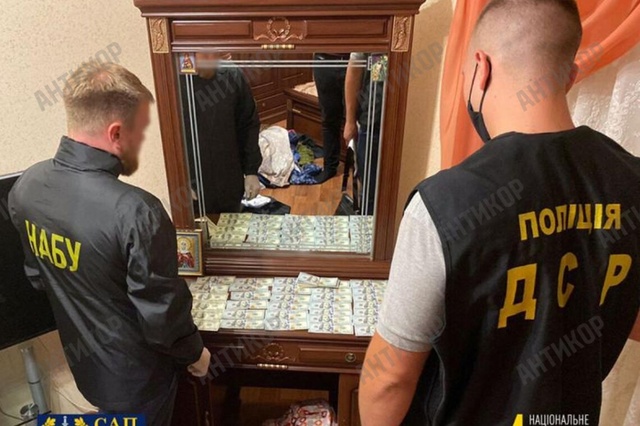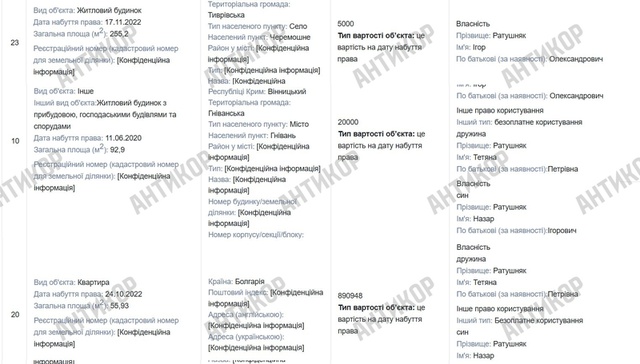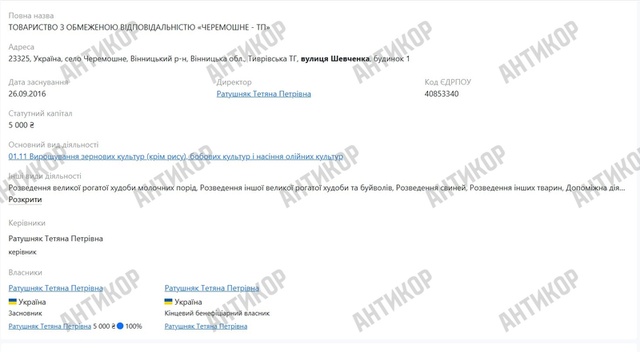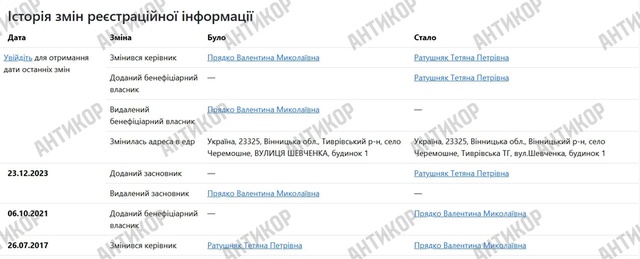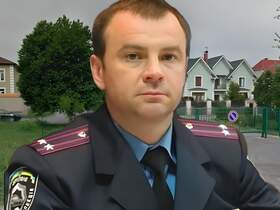The judge and the bribe: how former head of Tyvriv court Ihor Ratushnyak found himself back in his chair
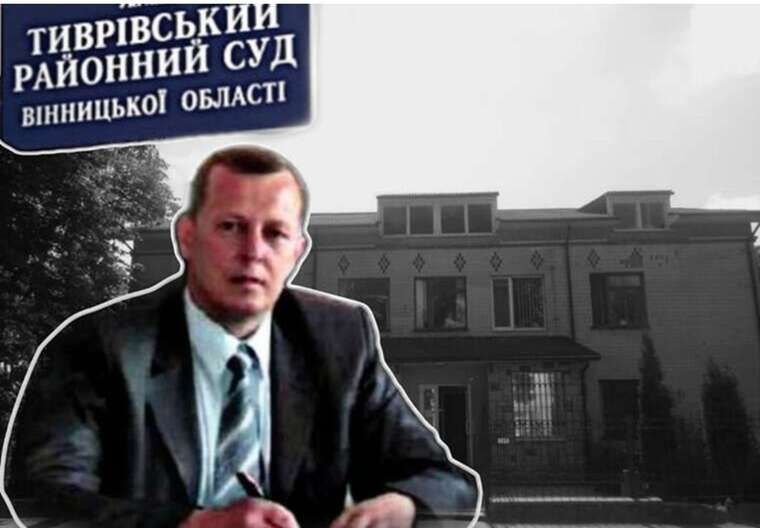
The judge and the bribe: how former head of Tyvriv court Ihor Ratushnyak found himself back in his chair
In December 2023, the High Anti-Corruption Court of Ukraine found Ihor Ratushnyak, who had headed the Tyvriv District Court of Vinnytsia Oblast for many years, guilty of a corruption offense. However, Ihor Ratushnyak continues to occupy the chair of the head of the Tyvriv District Court and has no intention of leaving it for prison. What is the reason for this?
What lies on the surface
According to the prosecution, in August 2021, the judge agreed to recognize ownership of a land plot for a certain sum. He valued each hectare at 40,000 hryvnias (approximately 1,540 USD), with the total bribe amounting to about 4,620 USD. The National Anti-Corruption Bureau documented two transfers—3,000 USD and 1,620 USD.
As a result, the court sentenced Ratushnyak to seven years in prison, banned him from holding public office for three years, and ordered the confiscation of his property. However, the verdict has not yet entered into force—Ratushnyak has filed an appeal and insists that the case has political motives. According to him, a conflict with the mother of Iryna Borzova, a member of the Servant of the People party, became the basis for the accusations. “I am accused of receiving illicit benefits, although there is no evidence that I demanded anything,” he stated.
Nevertheless, Ratushnyak was re-elected as the head of the Tyvriv District Court. In a secret vote among three candidates, he was unanimously chosen. The judge is confident that the verdict of the High Anti-Corruption Court is “ordered” and full of procedural errors: “Any lawyer who reads this verdict will immediately understand that it is weak. At the same time, the decision was made by a court of first instance, and there is still an appeal and the Supreme Court—statistically, 80% of HACC decisions are overturned.”
Additional attention was drawn to Ratushnyak’s practices in cases involving drunk drivers. Activists from the All-Ukrainian Association “Automaidan” discovered that the lawyer for the suspects, Vyacheslav Kohutnytskyi, is simultaneously defending Ratushnyak in the HACC. According to “Automaidan,” a scheme existed between them that allowed drivers to avoid accountability: a case would be assigned to a specific judge, Kohutnytskyi would file a motion to recuse the judge on grounds of bias, which Ratushnyak would review. Ultimately, the case would be transferred to Ratushnyak himself, after which it was often closed due to lack of evidence or elements of a crime.
Today, Ratushnyak insists on his innocence and hopes that the appeal and the Supreme Court will review the case and deliver a “fair and lawful decision.”
Well, let’s try to believe the judge. But first, let’s do two things: analyze the criminal case and take a look at his declaration.
Analysis of Ihor Ratushnyak’s criminal case: bribe, court, and verdict
The case against Ihor Ratushniak, the former head of the Tyvriv District Court of Vinnytsia region, has become one of the most high-profile anti-corruption cases in recent years. Criminal proceedings No. 52021000000000398 were opened on August 12, 2021. The charge—receiving illicit benefits, qualified under Part 3 of Article 368 of the Criminal Code of Ukraine. According to the investigation, the judge received 4,620 USD through an intermediary for issuing a decision recognizing ownership of a land plot of over three hectares. The case includes documents, search protocols, witness testimonies, seized money, and recorded conversations, which allowed the investigation to build a clear chain of evidence.
From the perspective of criminal procedure, the evidence was deemed admissible and convincing by the HACC. The defense tried to build a line of “provocation”—claiming that the bribe was provoked by detectives and that Ratushnyak did not show any initiative. The court rejected these arguments: the case materials confirm the judge’s deliberate actions and the involvement of an intermediary in transferring the bribe. In December 2023, the HACC issued a verdict—seven years in prison, confiscation of part of his property, and a three-year ban on holding positions in the judicial system.
The verdict has not yet entered into legal force—as mentioned earlier, Ihor Ratushnyak is appealing it in higher courts, so formally, he is considered innocent. One could end the discussion here, agreeing with Ihor Ratushnyak’s opinion—that the case is fabricated, and he was indeed framed on the orders of one of the “Servants of the People.” But there is a nuance. And that nuance is the judge’s declaration.
What does Ihor Ratushnyak’s declaration tell us?
And the declaration tells us a simple thing—if Ukraine were a rule-of-law country, as its top leaders claim, Ihor Ratushnyak would have long been behind bars. And he would be there for a very, very long time. Because the judge suddenly turns out to be quite a wealthy man, and his property, even that listed in the declaration, clearly does not match his income.
Even a brief analysis of what Ihor Ratushnyak has declared provides grounds to believe that the 4,620 USD bribe attributed to him by the court is a minor episode in his activities. We suggest turning to the declaration registry, but obvious things immediately catch the eye: a person who has worked in a public position all his life turns out to be the owner of 19 land plots with a total area of 268,803 square meters. Part of the land (as well as other property) is, of course, registered to family members, but that does not change the essence. By the way, the area, price, and dates of acquisition should have raised questions with the NACP and NABU, but, understandably, they did not.
However, land is a mere trifle. In the possession of the head of the Tyvriv District Court are such gems as a dam and an earthen embankment, which he also bought for pennies.
Yet, this too is a trifle. As is the housing, which includes a 255-square-meter house that Ihor Oleksandrovych bought for 5,000 (five thousand) hryvnias; a 92-square-meter house for 20,000 hryvnias; and a modest apartment in Bulgaria for 890,948 hryvnias. The latter, admittedly, are owned by his son and wife. But who does this deceive in this country?
The interesting details in Ratushnyak’s declaration do not end there. Among other things, it’s worth mentioning a modest car fleet, which, of course, includes a “Cruiser.” However, Ihor Oleksandrovych honestly rents this car from “Cheremoshne-TP” LLC.
The fact that the owner of “Cheremoshne-TP” LLC is Ihor Ratushnyak’s wife, Tetyana Ratushnyak, is pure coincidence.
This fact could explain Ihor Oleksandrovych’s modest cash savings—he has “in a sock” 53,000 USD and 140,000 hryvnias, not counting petty sums in bank accounts. However, the thing is that the “successful businesswoman” Tetyana Ratushnyak is not so successful—“Cheremoshne-TP” LLC is on the brink of financial collapse, deep in losses.
By the way, note the number of employees at the company—there are none. So, either someone is lying a little, or someone is lying a lot. Moreover, if we return to the issue of the acquisition of real estate by the family of the by-no-means-corrupt Ihor Ratushniak, most of the properties were purchased in the last few years. This was when the “successful businesswoman” Tetiana Ratushniak drove her company into losses. But even what was bought earlier cannot be explained by her business, as Tetiana Ratushniak became the beneficiary of “Cheremoshne-TP” LLC only in 2023.
By the way, nowhere is the origin of the money with which the judge’s wife bought corporate rights clarified. Purely formally, it cost 5,000 hryvnias—that is the authorized capital of “Cheremoshne-TP” LLC—but it’s unlikely that a sensible person would sell a company whose assets are valued at 3,490,500 hryvnias (the balance for 2022) for five thousand.
A somewhat obvious and sad conclusion
As Bulgakov put it—“here, gentlemen, we again have an example of lying. Congratulations, Citizen Liar!” The declaration can be analyzed further. But the conclusion from it is obvious—the property declared by Judge Ihor Ratushnyak clearly does not match his income.
Thus, the criminal proceedings against Ratushnyak are not just a story about a specific bribe. It is an example of how corrupt practices can be combined with declarative legality and formal procedure, while the justice system, which possesses the tools for punishment, is not always able to implement them. The case reveals key problem areas: control over judges’ income and property, the effectiveness of suspending the accused, and the transparency of verdict enforcement. Symbolically, the bribe amount is small, but the consequences are systemic.
Topics: Tetyana RatushnyakCheremoshne-TP LLCVyacheslav KohutnytskyiSupreme CourtVinnytsia regionBribeIhor RatushnyakJudgeNAPCNABU

Comments:
comments powered by DisqusЗагрузка...
Our polls
Show Poll results
Show all polls on the website








